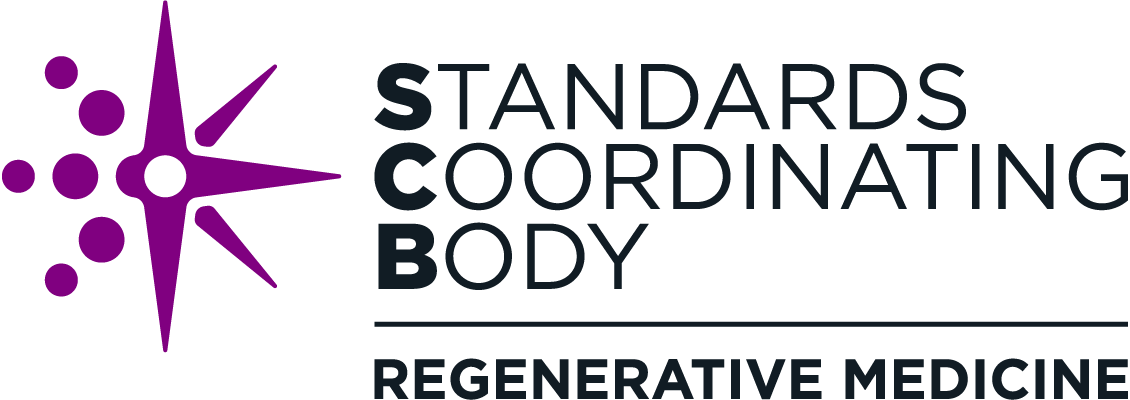SCB Staff Spotlight: Catherine (Katie) Zander, PhD
Dr. Zander (Katie) joined the SCB team in July 2019, bringing experience as a researcher, a postdoctoral community advocate, and a scientific policy fellow in Congress. Prior to joining SCB, Katie worked in the U.S. House of Representatives for the Committee on Energy and Commerce as the ASH’s inaugural AAAS Science & Technology Policy Fellow. Before the congressional fellowship, she conducted research on rare blood clotting diseases at the University of Alabama at Birmingham, where she also founded a patient education program. She holds a PhD in Chemistry from Binghamton University, where she used patch clamp techniques to study the kinetics of neurotransmitters.
To help you get to know Katie a little better, we asked her some questions about herself, her experience at SCB, and what she has learned from leading standards working groups.
What is your role at SCB?
My title at SCB is Scientific Program Manager. Because we are a small organization, this encompasses many things—I support my working groups to facilitate the development of standards. I’m working on the creation of our standards implementation curriculum and courses. Plus, I’ve written technical proposals to help SCB secure additional funding for standards education. Internally, I help to create the processes that make our work efficient and consistent. And, like everyone at SCB, I’m always doing outreach to let people know what SCB is doing so they can get involved. Similarly, I contribute to our social media, talk to experts to understand their perspectives on technical topics relevant to standards, and I speak at conferences and other events on the importance of standards.
Tell us about the working groups. Which ones do you support?
SCB’s standard project working groups are collaborative forums where subject matter experts and relevant stakeholders discuss and advance standards needs identified by the regenerative medicine community. Members work together to develop outputs such as feasibility studies, standards drafts, and white papers, or coordinate data generation activities such as round robin testing. I’m currently supporting the following working groups.
ASTM F2312, Standard Terminology Related to Tissue Engineered Medical Products (SCB project page)
PDA Standard 08-202x, Apheresis Collection for Cell and Gene Therapy Products (SCB project page)
Microphysiological Systems (MPS)
MPS lexicon
Cardiac MPS
Evaluating Pre-existing Immunity to Adeno-Associated Viruses
Gene Therapy Off Target Effects
Implementation curriculum development for ISO 20391-1, General Guidance on Cell Counting Methods and ISO 20391-2, Experimental Design and Statistical Analysis to Quantify Counting Method Performance (SCB project page)
What challenges have you encountered when leading working groups?
Sometimes working group progress can be slow at first. But once you get the right mix of people—in terms of both expertise and drive—things start to move quickly. When those groups don’t form organically, I’ll begin by reading the research to see who the leaders are in the field. Once I have an understanding of that, I’ll reach out to them directly. When the expertise is there, I’ll ask current working group members who they think would be a valuable addition, allowing us to recruit from their networks. At SCB, we’re actually really fortunate—because so many organizations value our work and want to support us, many will go out of their way to help us recruit the best subject matter experts for the working groups.
So, I guess the real challenge is sometimes things take more time than you’d like them to. We all want to see the benefits of these critically needed standards realized as quickly as possible.
What is your favorite thing about your role at SCB?
I like that it is different every day. And I love that there are always new challenges to figure out. It’s also pretty great that I get to learn about paradigm-shifting work from the top experts in the field.
Why do you feel SCB is unique?
No other organization is doing what we’re doing. We can get a lot done to accelerate standards advancement, in part because it is easy to join our working groups to contribute your expertise. Plus, we’re an unbiased organization with strong relationships with different stakeholders across the regenerative medicine space, including standards developing organizations (SDOs), professional organizations, and regulators. We’re trusted. It’s important that we’re creating a strong foundation for the regenerative medicine community to continue to build upon. That means we have to be forward thinking. We need to keep in mind how our current work fits into the regenerative medicine landscape, and how it may shape it for years to come.
What are some interesting facts about you?
I have an impressive record collection that dates all the way back to when I got my “Peter, Paul, and Mommy” LP autographed when I was 5. The reemergence of vinyl has been both wonderful and terrible for me. There are six different kinds of musical instruments in my house—a keyboard, guitars, banjos, a ukulele, a tin whistle, and a viola. Of those, I can somewhat play four of them. I’ll let you guess. Finally, I write a lot of letters and take my stationery a little too seriously.
